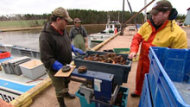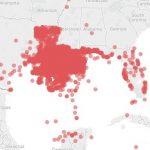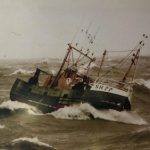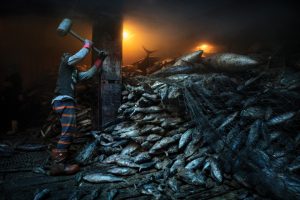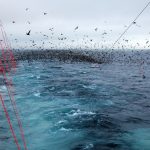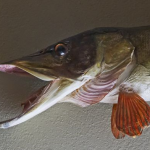Daily Archives: May 30, 2013
“The Attorney General is wrong on the law and she is wrong on the facts.” – Peter Shelley, Conservation Law Foundation
“The Attorney General is wrong on the law and she is wrong on the facts,” said Peter Shelley, senior counsel with CLF, who has been actively engaged in fisheries management for more than 20 years. “Political interference like this action by Attorney General Coakley has been a leading cause of the destruction of these fisheries over the past twenty years, harassing fishery managers to ignore the best science available.” continued , believe it or not.
National Marine Fisheries Service made mathematical errors??? No! estimating how many endangered beluga whales in Cook Inlet
and.com – This week’s decision by U.S. District Judge Sharon Gleason was a partial victory for conservation groups and the Alaska Native village of Chickaloon. They sued last year, claiming that seismic testing related to oil and g
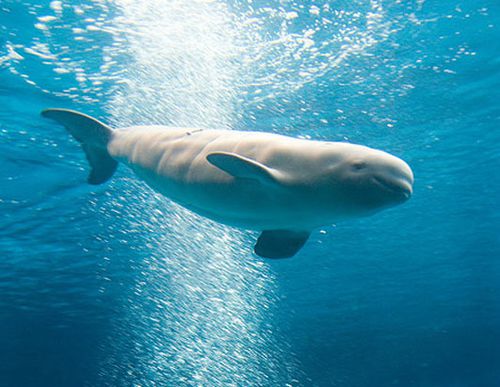
as exploration in Cook Inlet in south-central Alaska would harm the belugas and that the fisheries service improperly issued exploration permits to Apache Alaska Corp. for high-intensity seismic work. continued
What happened to the crab pots in Wrightsville Beach NC?
WECT6 – David Inscore said he and his fellow fishermen found one missing pot after another Wednesday morning around Wrightsville Beach. Inscore lost almost 20, but some of his colleagues’ losses are double that. continued
Massachusetts State Attorney General Martha Coakley has filed suit against NOAA – Go Martha!
BOSTON — State Attorney General Martha Coakley has filed suit against the federal National Oceanic and Atmospheric Administration, charging that NOAA wrongly failed to consider the “devastating economic impact” on fishing commun![]() ities when it set crippling new catch limits on Gloucester and other Massachusetts fishermen. continued
ities when it set crippling new catch limits on Gloucester and other Massachusetts fishermen. continued
No-fishing zones proposed in New Jersey
Northjersey.com – New Jersey, like many other coastal states, has never considered adopting what several marine conservation groups call the most effective tool to aid coastal ocean habitat – “no-take” protected areas that prohibit fishing and other activity, such as exploratory drilling, in the designated zones. “There are already a lot of areas where we are limited through regulations on gear or what season we can fish in,” said Nils Stolpe, communications director for the Garden State Seafood Association. continued
Late breakup means late opening for dip-netters at Chitina – Alaska Department of Fish and Game delayed the opening
newsminer.com – FAIRBANKS — Dip-netters champing at the bit to scoop salmon out of the Copper River at Chitina are going to have to hold on to their hip boots. continued
David Suzuki sounds the alarm that the sky is falling, and there is no limit to his “endangered species” dogma
Suzuki: Downgrading endangered species legislation troubling – Despite the evidence that endangered species laws are effective, governments in Canada are proceeding with deregulation and abdicating their responsibi lities for wildlife habitat protection, often quietly. After all, only a few environmental watchdogs such as the David Suzuki Foundation are looking out for creatures that otherwise have no voice. Read the article
lities for wildlife habitat protection, often quietly. After all, only a few environmental watchdogs such as the David Suzuki Foundation are looking out for creatures that otherwise have no voice. Read the article
A Washington ecologist’s wet dream: New Pacific herring populations
 Crosscut.com – The Minnow, a NOAA research vessel, takes off across Elliott Bay. In less than five minutes it reaches its destination — the base of the cliffs that line Seattle’s Magnolia neighborhood — and puts down anchor. audio, and article here
Crosscut.com – The Minnow, a NOAA research vessel, takes off across Elliott Bay. In less than five minutes it reaches its destination — the base of the cliffs that line Seattle’s Magnolia neighborhood — and puts down anchor. audio, and article here
FFAW President Earle McCurdy says EU issue of minimum processing requirements worth a look.
 CBCnews -“We’re currently at a competitive disadvantage in terms of the tariffs, regulations, and so on,” said McCurdy. “So this may be a chance to strengthen the industry, stabilize jobs in our plants and on our fishing boats, and just improve our return from the market.” continued
CBCnews -“We’re currently at a competitive disadvantage in terms of the tariffs, regulations, and so on,” said McCurdy. “So this may be a chance to strengthen the industry, stabilize jobs in our plants and on our fishing boats, and just improve our return from the market.” continued
Smart, innovative Maryland kids, Luke Andraka and Dana Lunkenheimer, build a better, or at least less problematic, crab trap
For years, environmentalists and watermen have been searching for a way to deal with the Chesapeake Bay’s “ghost pots” — continued
SC considers seafood origins truth-in-advertising bill
the state.com – If those tasty crustaceans smothered by grits in South Carolina restaurants are from Florida, the restaurant owner would be breaking the law by calling them “local” shrimp, under a change working its way through the Legislature. continued
Fish consumers may not notice cuts that are hurting New England’s fishermen
Associated Press – To the 79-year-old, the decline of the industry has stolen jobs, community spirit and opportunity. And it’s not over, Gilson said. This month , New England’s fishermen again saw a cut to the number of fish they can catch, this time so deep that the historic industry’s existence is threatened from Rhode Island to Maine,,, continued
Gloucester: Confronting a crisis – Fishermen shift focus; Tierney renews push for federal aid
![]() Joe Orlando, captain of the mid-sized dragger Padre Pio and president of the 35-boat Gloucester trawl sector, was modifying his nets to keep them closer to the bottom as he shifts his fishing focus from the iconic cod and haddock to dabs — smallest of the flatfish, which burrow in the sand and mud of the Gulf of Maine. He and the rest of the day boat fishermen preparing for the bittersweet opening June 1 of hundreds of nautical miles of water that was closed to fishing through May. continued
Joe Orlando, captain of the mid-sized dragger Padre Pio and president of the 35-boat Gloucester trawl sector, was modifying his nets to keep them closer to the bottom as he shifts his fishing focus from the iconic cod and haddock to dabs — smallest of the flatfish, which burrow in the sand and mud of the Gulf of Maine. He and the rest of the day boat fishermen preparing for the bittersweet opening June 1 of hundreds of nautical miles of water that was closed to fishing through May. continued






